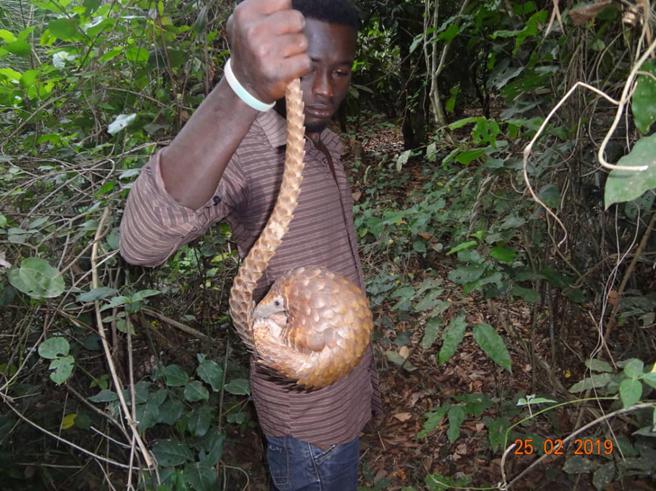Prince Pascal Agro
Other projects
12 Aug 2020
Up-Scaling Efforts to Safeguard Populations of Two Vulnerable Pangolin Species (Phataginus tricuspis and Phataginus tetradactyla) in the Asukese Forest Reserve
14 Dec 2022
Improving the Long-Term Viability of Populations and Habitats of the Endangered, White-Bellied Pangolin in Asukese Forest Reserve, Ghana
Poor awareness among local community members, deforestation, poaching, and illegal trade, all threatens the long-term existence of pangolin populations in Ghana. Phataginus tricuspis are unsustainably hunted and consumed as bush-meat and their parts are used in the preparation of some African Traditional medicines. The situation is worsened by the general lack of data on the species’ population, distribution, and ecology critical to make informed decisions on their conservation. The aim of this project is to document and obtain current baseline data on pangolin populations and initiate conservation awareness and education on the local conservation status of pangolins in Ghana.

Local guide (Oto) with one of the White-bellied pangolins.
There is a lack of knowledge surrounding the plight of “Pangolins”, millions of which are traded every year. Locally, pangolins populations are dwindling due to unsustainable harvesting. Pangolins are valued for their meat, a delicacy in some communities. Their scales serve as an ingredient in traditional medicines. In Ghana, pangolins are under severe threat and may be heading towards extinction. Listed as ‘vulnerable’ on IUCN Red List of Threatened Species (2014), CITES put them under appendix I. The IUCN pangolin specialist group emphasizes the need for baseline ecological surveys to assemble data to better assess the impact of poaching on pangolins.
The aim of the project is to document and obtain current baseline data on pangolin populations and initiate conservation awareness and education on the local conservation of pangolins in Ghana. The project will fill the knowledge gap on the current plight of pangolin populations, the associated threats and their habitat requirements in the area. Ultimately, the project will draw both national and international attention on the need to conserve regions hosting populations of these elusive species countrywide and West Africa as a whole. We will achieve this by engaging the community members and creating awareness among them to take action to protect their environment and wildlife resources. Ultimately, this project will contribute to the protection of the entire ecosystem both on and off legally protected areas. Aside from safeguarding pangolins populations, other equally venerable and endangered species stand to benefit as umbrella species. The project will facilitate a collaborative conservation support among the inhabitants through the awareness education programs and public symposiums.